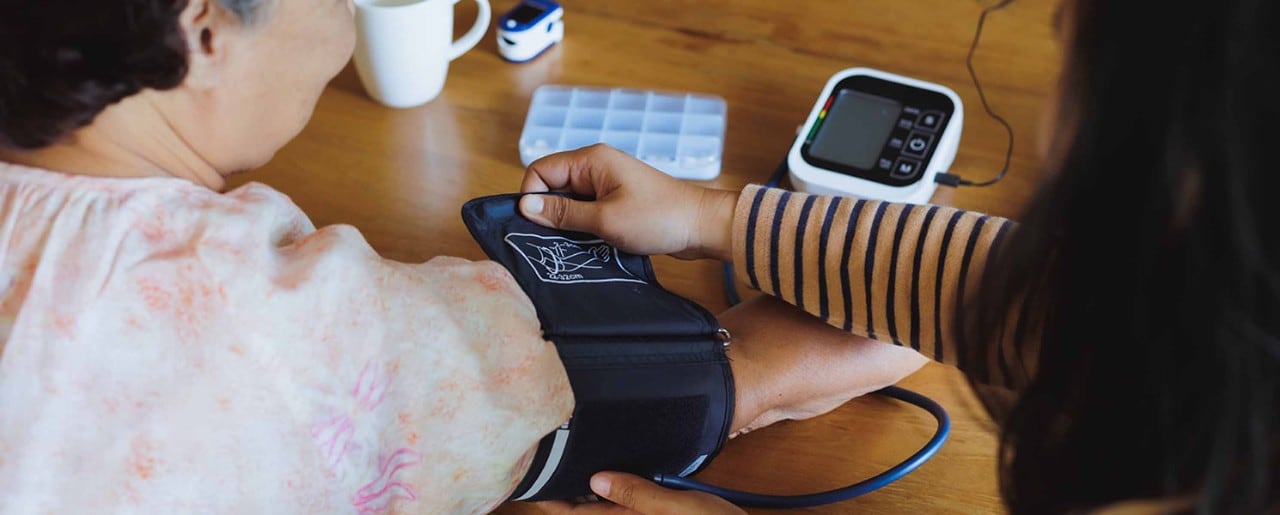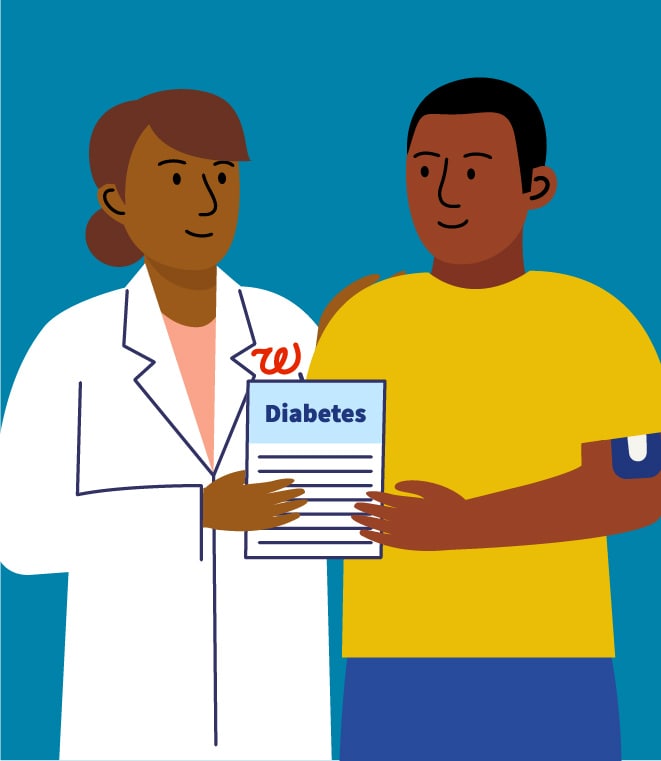Health
Diabetes and your heart
By Loren Blinde, PhD Feb 17, 2023 • 4 min
If you have diabetes, you’re used to monitoring and managing your health. The good news is that managing your diabetes effectively can help you protect your heart along with your blood sugar levels. While people living with diabetes are about two times as likely to develop heart disease, a heart-healthy lifestyle is good for your cardiovascular health and for your diabetes management. Here are some ways to be sweet to both.
Diabetes and heart disease: What’s the connection?
- Over time, high blood sugar levels can damage your blood vessels and nerves, including those that control your heart. That damage can lead to heart disease.
- People with diabetes are more likely to have other conditions — particularly high blood pressure and high cholesterol levels — that can contribute to heart disease on their own.
To protect your heart and your health, good diabetes management is key
Start with your ABCs to manage your diabetes and protect your heart: A1C, blood pressure, cholesterol and smoking.
The A1C test is a simple blood test that shows you your average blood glucose level over the past two to three months. Knowing your A1C levels can give you a better picture of how high your blood sugar levels generally are — and whether they’re high enough to cause damage. The American Diabetes Association supports an A1C goal of below 7% for most individuals with diabetes.
Keeping your blood pressure within normal range can help protect your heart and blood vessels from damage. There are lots of medications available to treat high blood pressure, and a number of lifestyle changes can help as well. Talk with your healthcare provider about your blood pressure numbers and whether you need to lower them. Keeping blood pressure below 130/80 mm Hg is the current American Heart Association guideline for people with diabetes.
Cholesterol is a form of fat in the blood, and high levels can raise your heart attack and stroke risk. A blood test can help you keep an eye on your levels. If your cholesterol is too high, talk with your healthcare provider about lifestyle changes you can make and whether your provider recommends a cholesterol-lowering medication.
Smoking can make your heart have to work harder, and it can make cholesterol and blood pressure levels worse as well. Add diabetes on top of that, and it’s not a pretty picture. If you smoke, quit. Your healthcare provider can provide resources to help you. And if you don’t smoke, do your heart and your diabetes a favor and don’t start.
Other heart-healthy, diabetes-friendly lifestyle choices you can make include:
- Being physically active each day
- Losing extra weight — even a modest reduction of 5% to 7% of your body weight can lower blood sugar
- Taking steps to reduce stress
- Getting at least seven hours of sleep each night
- Following your healthy eating plan guidelines
- Taking medication as your healthcare provider directs
Published February 2023.




